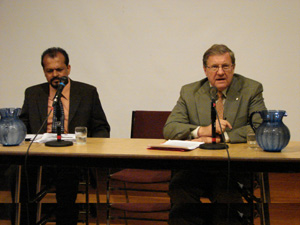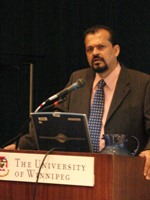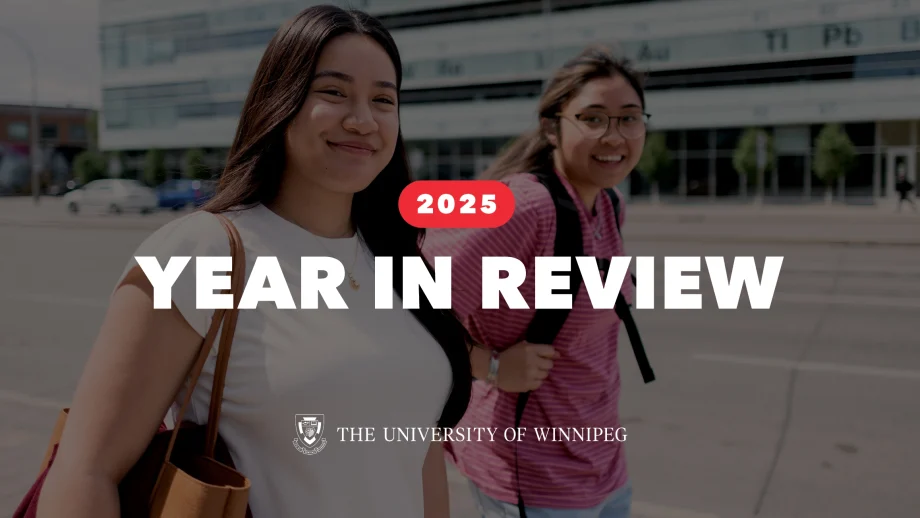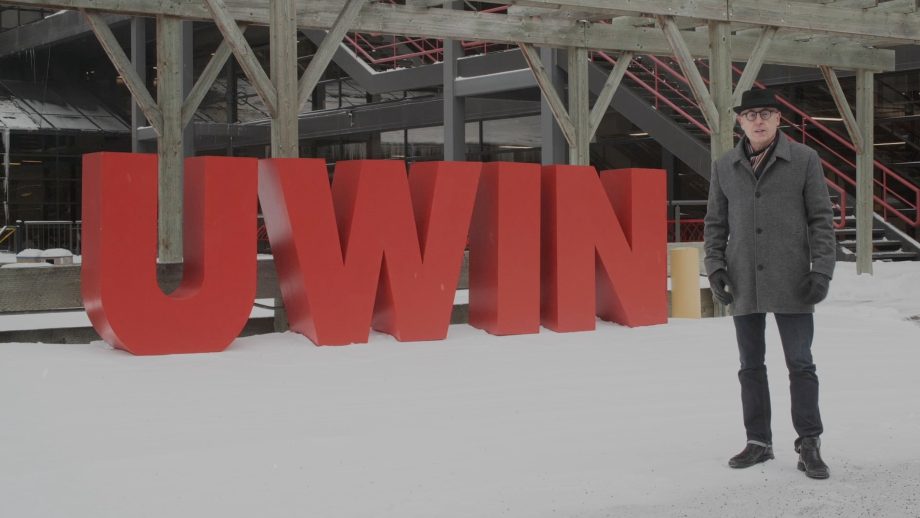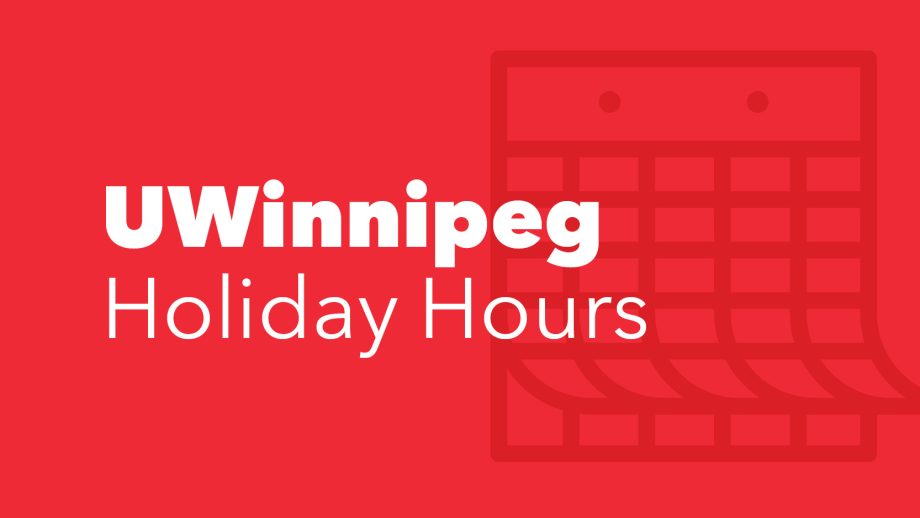WINNIPEG— Dr. Lloyd Axworthy, President and Vice-Chancellor of The University of Winnipeg, has been appointed to the High Level Commission on Legal Empowerment of the Poor (HLCLEP), a global initiative hosted by the United Nations Development Programme. The announcement was made on Friday, July 14, 2006 by Dr. Naresh Singh, Executive Director of the HLCLEP Secretariat, based in New York, following a seminar on the legal entitlement of the poor hosted by UWinnipeg’s Global College.
Dr. Axworthy, Canada’s foreign affairs minister from 1996 to 2000, is the only Canadian appointed to serve on the Commission.
“I am personally honoured to accept this appointment,” said Dr. Axworthy. “It is a privilege for me to serve on a commission that aims to give power to those who lack it—the poor and disadvantaged in society. I hope that my longstanding commitment to issues of poverty and my work with community leaders both here in Winnipeg and throughout Canada and around the world will benefit the Commission in its work.”
The Commission is a new, independent global initiative which sets out to explore how nations can reduce poverty through reforms that expand access to legal protection and opportunities for all. It was launched in September 2005 by a group of developing and industrialized countries including Canada. The work of the Commission aims to contribute significantly to achieving the Millennium Development Goals both at the global and country levels, including the pledge by all UN members to cut extreme poverty worldwide by half by the year 2015.
“Never in the history of human civilization has anyone with power ever willingly given power to those without power. The powerless have to take power either through violent means, civil rights movements, or passive resistance. So, if the word ‘empowerment’ means ‘to give power to’ then it is a nonsense word. It never happens,” said Dr. Singh (pictured left). “What is possible is self empowerment. We have to create the environment in which the poor can empower themselves. The work of the Commission is about setting up the legal environment in which the poor can take greater control of their lives.”
The Commission, which will complete its work in 2008, is comprised of eminent policy-makers and practitioners from throughout the world, who reflect a broad diversity of perspectives and experiences. Among the Commission’s members are former heads of state and senior policy-makers with proven track records in executing challenging policy initiatives and reform programs in their countries.
Dr. Axworthy joins other prominent Commission members including:
- Madeleine Albright, co-chair, former U.S. Secretary of State (Honorary Doctorate, UWinnipeg, 2005)
- Gordon Brown, Chancellor of the Exchequer, United Kingdom
- Fernando Cardoso, former President of Brazil
- Hernando de Soto, co-chair, President of the Institute for Liberty and Democracy, Peru
- Shirin Ebadi, Nobel Peace Prize Laureate, Iran
- Benjamin Mkapa, former President of the United Republic of Tanzania
- Mike Moore, former Prime Minister of New Zealand, former Director General of the WTO
- Mary Robinson, former President of Ireland and former High Commissioner of Human Rights (Honorary Doctorate, UWinnipeg, 2003)
- Ernesto Zedillo, former President of Mexico
Much of the Commission’s work will be conducted through smaller working groups, organized around thematic areas such as property rights, labour rights, and entrepreneurship. Dr. Axworthy will chair one of these working groups, entitled, “Access to Justice and Rule of Law.” This working group will consider the top-down and bottom-up processes necessary for generating effective reforms and practical recommendations, and will examine legal tools accessible to all people. It will involve grassroots groups that represent poor or disenfranchised populations (such as indigenous peoples, women, displaced populations, informal sector associations, and labour unions).
For more information on the HLCLEP, please visit:http://www.undp.org/legalempowerment/index.shtml Today’s seminar, “Legal Empowerment for Social Justice,” featured presentations by Dr. Singh and Dr. Axworthy, followed by a Question & Answer session with invited guests from NGOs, government, academia, and the extended community. Dr. Singh will take back comments from the seminar to form part of his report on Canada’s work on the legal empowerment of the poor.
Located in the heart of downtown, The University of Winnipeg is a compact, diverse, multicultural academic community committed to access and excellence. Home to more than 9,200 full- and part-time students, UWinnipeg has been ranked by our graduates in the Top Ten of all Canadian universities when asked about their “Entire Educational Experience” (Maclean’s Graduate Survey, June 2006). The Globe & Mail 2005 Report Card gives The University of Winnipeg an overall ‘A’ grade in the areas of teaching quality, class sizes, faculty-student interaction, and the availability of faculty outside classroom hours. Find out why. Visit www.uwinnipeg.ca
FOR MORE INFORMATION
Ilana Simon, UWinnipeg Communications Officer
T: 204.786.9930 C: 204.782.3279
Annette Elvers, UWinnipeg Communications Officer
T: 204.786.9939

